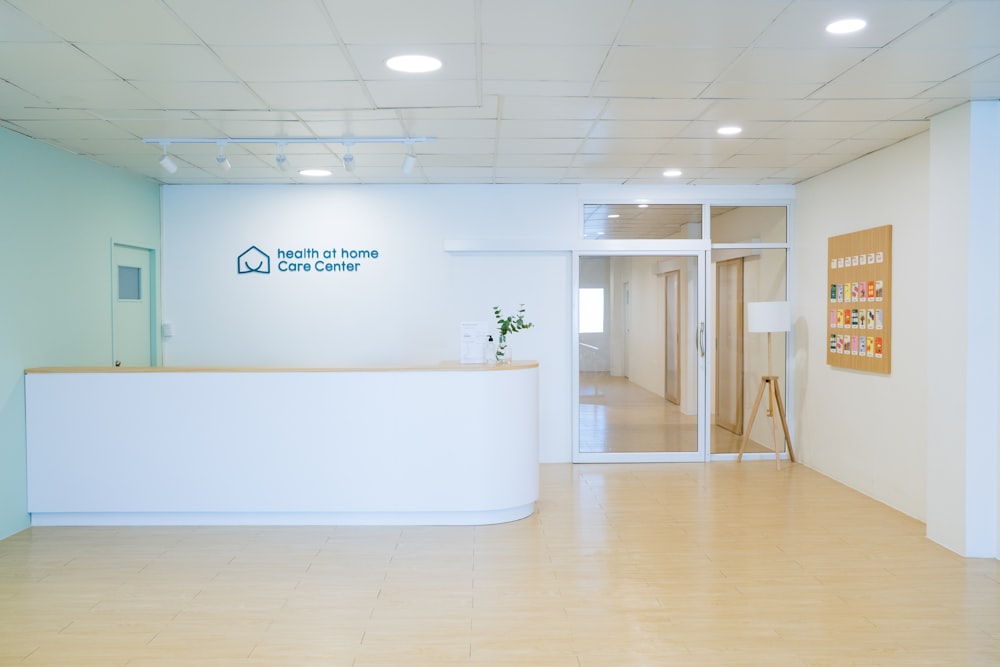Relatives of elderly or disabled people in the life of the United States often face a choice of what to do with their dear person to help him and not give up work or a comfortable image.
There are special nursing homes in the country where people meet with morbidity in countries with limited opportunities. At the same time, home care nursing is rapidly gaining popularity, when the same services are provided to a disabled person in his usual conditions.
How are patients cared for in a nursing home?

Nursing homes are special semi-closed institutions that are located in every state of the country and are designed for the comfortable living of the elderly or incapacitated people under the constant supervision of professional doctors or nurses. Such houses simultaneously combine sanatoriums and hospitals, so that it is always possible to provide the patient with planned or emergency medical care.
As a rule, in a nursing home, depending on the level of comfort and type of insurance of the patient, the following basic services are offered:
- Accommodation in special rooms for 1, 2 or more people.
- Provision for the personal use of a bathroom, shower, and other sanitary and hygienic devices.
- Providing the patient with food depends on the internal routine of the nursing home and the individual limitations of the patient.
- Ensuring continuous health monitoring with referral to planned or emergency outpatient or inpatient treatment.
- If necessary, assist incapacitated patients, namely, dressing, washing the patient, helping with the toilet, transferring a person to a wheelchair to go for a walk.
- Providing psychological assistance to those patients who are at the last stage of the life cycle.
- The possibility of visiting the patient by relatives and friends, during office hours, ex-communication of the patient with the removal of responsibility for this period from the nursing home.
Such houses have many disadvantages because people don’t feel at home in a comfortable domestic atmosphere, they are constantly surrounded by the same sick and disabled patients, which negatively affects their mental level. In addition, such nursing home services are very expensive, because insurance in America covers the cost of long-term maintenance of such patients is extremely rare.
Another major disadvantage of such institutions is the small number of staff per patient. Given that there aren’t so many nursing homes in the US, they are often overcrowded. Thus, for every 10 disabled seniors people, there can be only one nurse and one social worker who volunteers to provide additional assistance in their spare time.
This means that the patient may not receive the necessary assistance in time, even in an emergency, which often leads to the most serious consequences.
How is home health care provided?
Many Americans are increasingly turning away from nursing homes, not only for economic reasons but also for humanitarian reasons.
These people often use our All American Home Care center, which is staffed by highly trained physicians who can provide both primary, secondary, and tertiary care. In such medical and palliative institutions (that is, hospices), the following strict requirements are imposed on the staff:
- The presence of general and narrow profile doctors to provide timely assistance to the patient.
- Each nurse must have a diploma of higher medical education and experience working with similar patients.
- All nurses are required to be able to give injections, measure blood pressure, and conduct intensive care and resuscitation.
- When assisting, in case of rehabilitation after surgery or a serious injury, all employees must do dressings, treat wounds, and decontaminate them, excluding the progression of the disease and infection.
- The nurse is obliged to study the patient’s preferred diet, taking into account the restrictions of the attending physician, and feed her ward strictly by the hour.
- If necessary, an additional social worker is assigned to the patient, who goes to the store, transfers an incapacitated person to a wheelchair, walks next to him, or performs several other tasks.
- Each employee who works with a disabled person or provides him with palliative care must have excellent human qualities, be friendly and polite, not raise the timbre of his voice, not express negative emotions to maintain the presence of mind and good mood in the patient, which contributes to his quick recovery, or comfort at the final stage of life.
- All nurses should have the skills of a psychologist since patients in this condition can be aggressive or naughty, refuse to take food or medicine, and shout at their assistants. Such work requires resistance to stress and a lot of patience.
Employees of our center are recruited after passing a series of tests and trials. Only every tenth nurse applying for such a position is hired by the company headquarters. This allows us to guarantee our customers only quality services.
Home health care is also a more affordable service than nursing home care. Many insurance companies often include such services in their patient policies, and in the absence of insurance, such services are not very expensive – no more than 1/3 of the average bed-day in a conventional hospital.
What is home hospice and how is palliative care provided?

In some cases, the patient, after examinations, or according to the results of the diagnosis, will be transferred to palliative care. This is sad news for his relatives and close people because doctors give predictions about his life for no more than six months. At such moments, it is especially important to turn to professionals who will provide these patients with the highest level of comfort when performing the following actions:
- Constant monitoring of the health status of the ward.
- Timely detection of pathologies, and deterioration of the patient’s well-being.
- Providing emergency assistance.
- If necessary, the involvement of doctors and other specialists, and resuscitators.
- Feeding the patient, including intravenously, with the help of a dropper and saline.
- Dressing, washing the patient, changing diapers, and other sanitary and hygienic procedures.
- Presence next to a homeless person for 24 hours, 7 days a week.
- Providing psychological assistance to a person to smooth out his suffering and worries about his future.
- If necessary, the introduction of potent painkillers eliminates the risk of unbearable pain spreading throughout the body.
Unfortunately, in almost 100% of cases, the result of such work of a nurse is the inevitable death of the patient. With this level of responsibility, we employ only the most experienced and stress-resistant specialists in our All American home care, who will not lose their heads in difficult times and will always help the patient at any stage of his life.
Relatives of our patients leave a lot of feedback and positive recommendations about working with us, thanks to our self-sufficient work and friendly attitude towards each patient.
How do choose a good nurse for patient care?
Choosing a good nurse for an elderly, incapacitated, or dying person from a serious illness is far from an easy task. When interviewing staff, it is recommended to ask them the following questions:
- Ask about a diploma in medical education.
- Inquire about the availability of a certificate obtained as a result of advanced training courses.
- Request to provide letters of recommendation from former clients.
- Introduce the future nurse to the patient so that he can assess his level of sympathy for her.
- Find out about the readiness to work next to the patient 24/7, as such people require round-the-clock supervision. As a rule, when applying to specialized organizations, the customer is provided with several nurses who work next to the patient in shifts.
- Offer to work for a trial period with constant monitoring of her actions. As a rule, such a period lasts no more than 15 days, after which the customer makes the final decision on the trust of his relative to such a person.
One of the main requirements should be a humane treatment of the patient, as well as a willingness to be with him to the final. More often than not, older people become strongly attached to their nurses and changing the person who cares for them greatly disturbs their mental state.
In the United States, there are a lot of special agents who are initially involved in the selection of such staff. Employees of officially registered companies test candidates, verify the authenticity of their diplomas and letters of recommendation and then publish offers in a special database for future customers. In this case, the patient can be 100% sure that the qualifications of such a nurse fully correspond to the data presented by her.
Our center provides high-quality medical services in the field of healthcare, both during the rehabilitation of a patient at home after serious surgical interventions or injuries and when palliative care is needed.
Read Also:






























All Comments
b^onus de inscric~ao na binance
Your article helped me a lot, is there any more related content? Thanks!